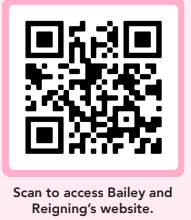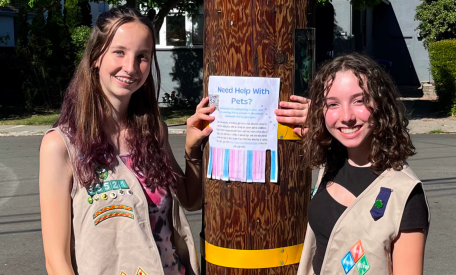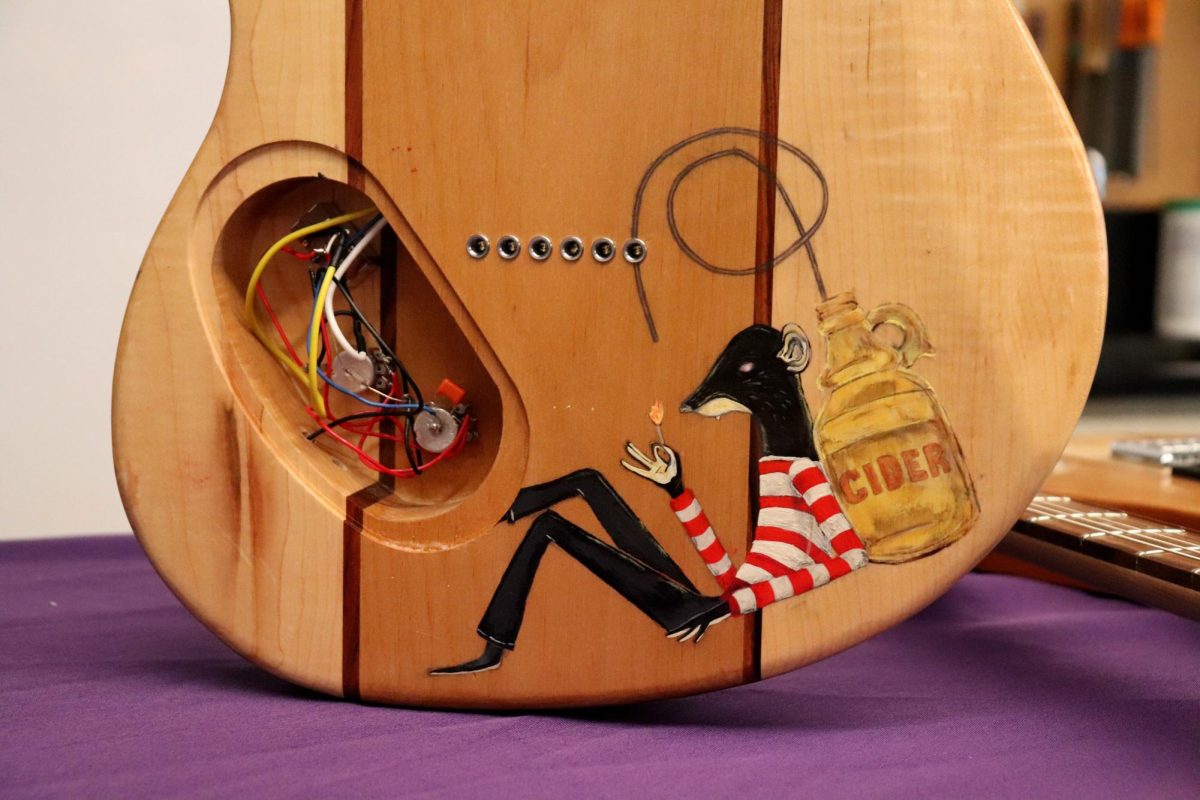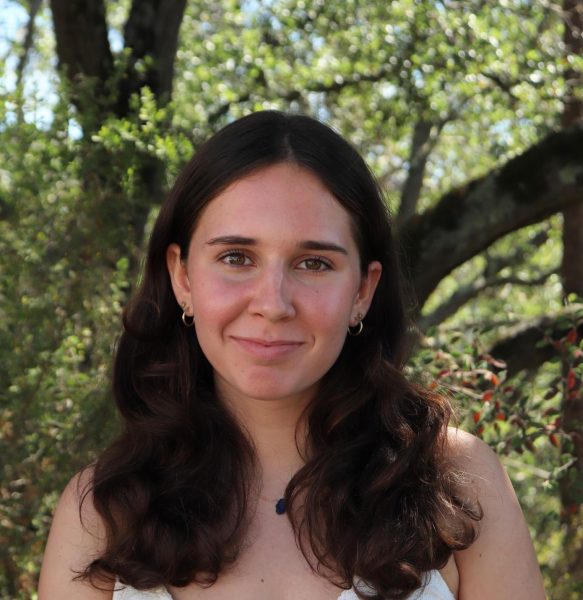When one thinks of Girl Scouts, they picture cookie sales, park cleanups, and camping trips. Intensive service projects are not what always comes to mind.
In November of 2022, Girl Scouts and freshmen Olivia Bailey and Rose Reigning started their Silver Award project.
“[The Silver Award] is 50 hours of work for a project that benefits the community,” Bailey said.
Bailey said she and Reigning finished their project in April of this year and have since been working to publicize it. They centered their Silver Award around making a website to inform pet owners how to care for their animals properly.
“There’s an issue of pet owners not having enough information or resources to properly take care of their [animals],” Bailey said. “A lot of animals that are adopted end up back in shelters.”
Reigning said she and Bailey used trusted websites to do research about different animals and how to care for them. Bailey and Reigning said they also had a mentor who advised them on different potential animal diseases and issues that can come with pet ownership. When they finished their research they then had to figure out the best way to inform people.
“After brainstorming our project, we were like, ‘How can we spread the word out to the most possible people?’,” Reigning said.
Bailey and Reigning said they decided to put all of their research into a website.
“No one can throw [the information] away or anything,” Reigning said. “[A person] can see it as long as they’re connected to the internet.”
The next step for Bailey and Reigning as Girl Scouts will be to complete their Gold Award. Girl Scout senior Julia Montes was never able to do a Silver Award due to the Covid-19 pandemic, but recently completed her Gold Award.
“[The main difference] with a Gold Award is you have to take initiative and do it all yourself,” Montes said.
In addition to the Gold Award requiring a Girl Scout to work alone, the award requires at least 80 hours of work, according to the Girl Scout website. Montes started her Gold Award in 2023 and recently finished in August.
“I volunteered with the United States Agency for International Development in Malawi,” Montes said.
Montes said she was inspired by that experience to make an animal husbandry project outside a refugee camp in Malawi for her Gold Award. According to Brittanica, animal husbandry is the controlled breeding of domestic animals used for utility.
“They had food insecurity issues with pigs and rabbits being stolen and getting illnesses,” Montes said. “I helped fundraise and build around five animal enclosures made out of brick in order to keep the livestock safe and have food for the community.”
Reigning said she likes working on Girl Scouts projects because she feels like she’s making a difference.
“It’s not just short-term volunteering where I do this and it’s done. It can have more long-lasting effects,” Reigning said.
Montes said many Girl Scouts quit before getting to more intense projects like Gold or Silver Awards. Additionally, she said there can be some social stigma surrounding being a Girl Scout.
“In middle school, there became a point where it became ‘embarrassing’ to be in Girl Scouts,” Montes said.
Bailey said girls dropped out of Girl Scouts throughout middle school, and more dropped out of her and Reigning’s troop this year. Despite girls dropping out as they get older, Reigning said she feels that Girl Scouts still has an impact on the community.
“Girl Scouts is bigger than [just] myself,” Reigning said.
Bailey and Reigning said they weren’t sure what their Gold Award projects will look like, but they are each going to complete one and stick with Girl Scouts throughout high school. Bailey and Reigning’s Silver Award project’s website is accessible through the QR code.





























